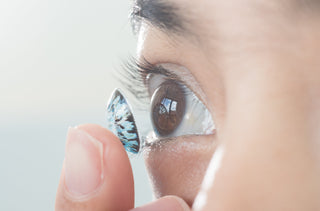Our eyes are undoubtedly one of the most fascinating parts of our bodies. They are the windows through which we perceive the world around us. With such great importance, it's unsurprising that eye health myths have developed. Let's take a look at some of these common myths:
Reading in dim light damages your eyes
This myth has been passed down from generation to generation, suggesting that reading in dim light, such as from a bedside lamp, can cause permanent damage to the eyes. However, while this can tire the eyes and cause temporary eyestrain, it doesn't usually lead to permanent damage. It's always best to read in adequate light to avoid eyestrain, but it won't affect the long-term health of your eyes.
Eating carrots for better vision
This myth is partly true, but it's exaggerated. Carrots contain vitamin A, essential for eye health, especially night vision. However, eating excessive carrots will not give your vision a supernatural capacity. A balanced diet, rich in various nutrients, is essential for maintaining optimal vision.
Prolonged screen use irreparably damages your eyes
With the advent of modern technology, we spend more and more time in front of screens, whether computers or smartphones. While excessive screen use can lead to eyestrain and other uncomfortable symptoms, there's no conclusive evidence that it causes permanent eye damage. The key is taking regular breaks, blinking often, and maintaining an appropriate viewing distance.
Glasses weaken your eyes
This myth is often heard, especially when it comes to corrective eyewear. The truth is that glasses don't weaken your eyes. They simply correct refractive problems, such as myopia, hyperopia or presbyopia, enabling your eyes to see more clearly. Delaying or avoiding wearing glasses when necessary can put extra strain on your eyes and worsen vision problems in the long term.
People who wear glasses can't wear contact lenses
This belief is widely held, but it's incorrect. Today, many people who wear glasses also opt for contact lenses for various reasons, such as sports or simply for aesthetic reasons. Wearing glasses doesn't necessarily preclude wearing contact lenses, and many optometrists offer contact lens options that correct various vision problems, whether myopia, hyperopia, astigmatism or presbyopia.
It's essential to distinguish fact from myth when it comes to the health of our eyes. A healthy lifestyle, a balanced diet and proper eye care are essential to maintaining optimal vision throughout our lives. By understanding and debunking these common misconceptions, we can make more informed decisions for the well-being of our eyes.





















































